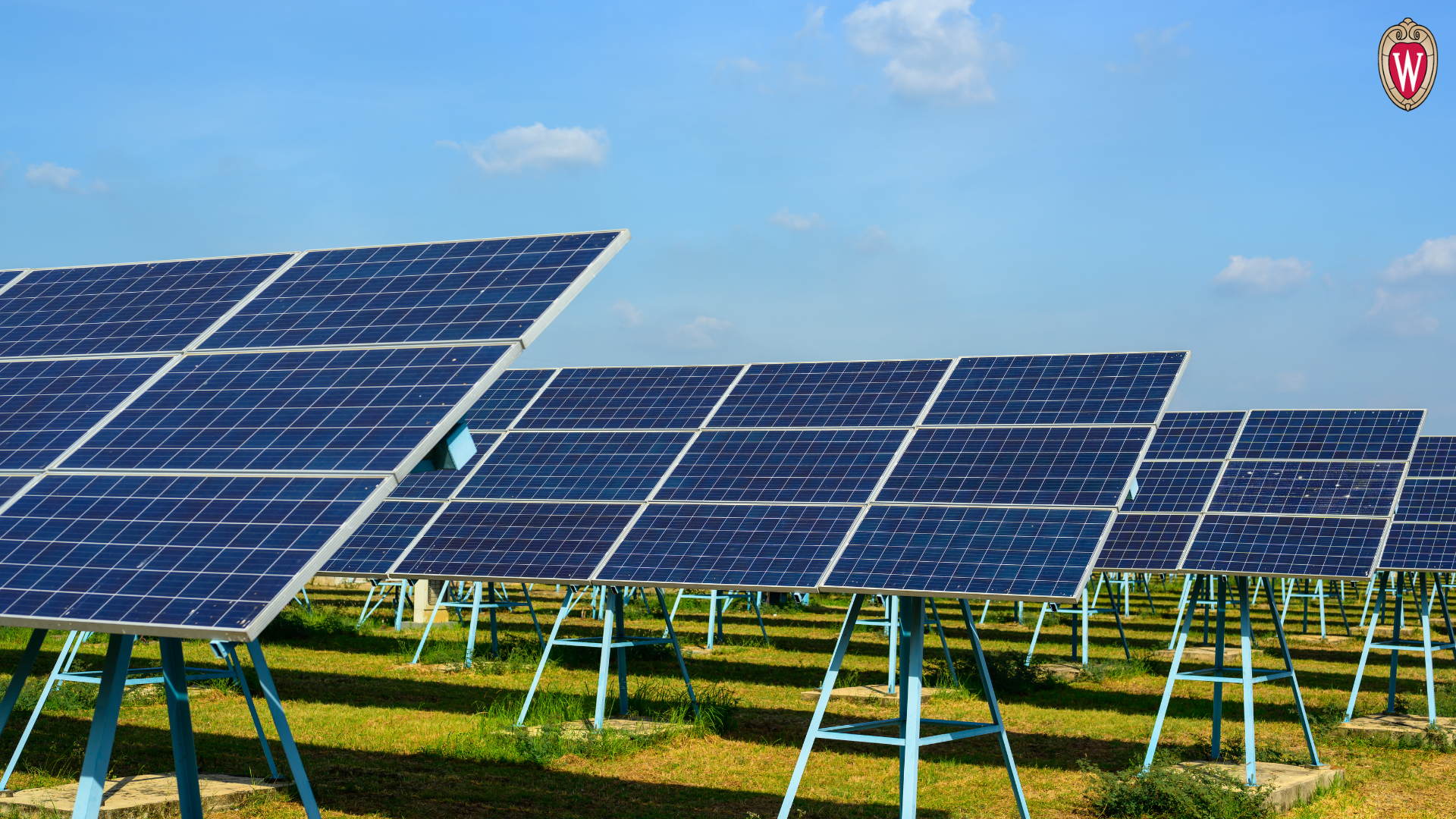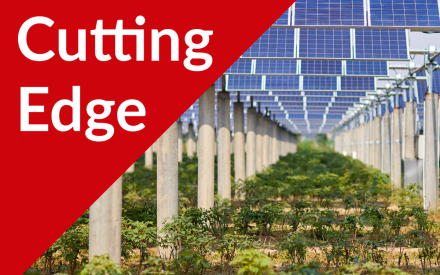Solar Contracts


Solar Contracts on Agricultural Land
Home » Ag Land Pricing & Contracts » Solar Contracts on Agricultural Land
The development of solar arrays across Wisconsin for electric generation is expanding as interest grows in solar as a renewable energy resource. Solar developers prefer level sites free of trees, buildings, and other obstructions to the sun, and land located near roads and needed power transmission facilities, including three-phase transmission hubs and power substations. In many instances, agricultural land fits many of these qualifications. Wisconsin has 14.2 million acres of farmland, making our state attractive to solar developers.
Solar leasing can be a significant financial opportunity for landowners. Solar leases provide a potential new source of income for farmers and other rural landowners. However, a solar lease is about more than just the money. Solar leases and easements are complex legal agreements with many business implications for the landowner. The first offer received may not be the best. Instead, landowners need to do homework upfront to determine if a solar lease offer is right for them, financially and legally.
A guide for leasing land for solar development
Are you thinking about leasing your farmland for solar development? provides important items to think about before negotiating with a solar developer, with a focus on legal liability and tax implications including:
- Property tax changes
- Farmland preservation programs
- Local regulations
The fact sheet also describes common contractual terms and conditions included in a solar lease agreement.
Conversations with Solar Developers is a companion to the fact sheet. This conversation guide transforms the issues raised in the fact sheet into questions which landowners can use to guide their conversations with solar developers. In addition, the conversation guide, once completed, can serve as a term sheet to aid your attorney in reviewing your solar lease or easement.
The fact sheet and conversation guide do not and are not intended to, constitute legal advice. All information, content, and materials available here are for general informational purposes only and may not constitute the most up-to-date legal or other information. Seek legal guidance from competent legal counsel before negotiating and signing a solar lease.
Solar Contract Seminar
Developers are approaching farmers and rural landowners to secure land leases or options to purchase, yet many landowners are unsure what to ask or expect in the contracting process.
Sherrie Gruder, LEED AP, Distinguished Sustainable Design & Energy Specialist with Extension, discusses the current state of solar energy in Wisconsin.
Attorneys Bill Oemichen, Professor of Practice-Law, and Kelly T. Wilfert, Farm Law Outreach Specialist, discuss risks and opportunities in solar contracts, common terminology, and other considerations for those farmers and landowners considering a solar lease or easement.
Solar Leasing Your Farmland
Wisconsin Farm Bureau Federation Executive Director Bradley Uken interviews U.W.-Madison Division of Extension’s Karl Green, Local Government Education Program Manager, and Bill Oemichen, Professor of Practice – Law, on the opportunities and risks of leasing farmland to solar developers.
The wide-ranging interview focuses on why solar energy facility developers are rapidly increasing their demand for farmland; the significant economic gain for farmers and other rural landowners entering a long-term solar lease; why lease research should be done upfront before entering negotiations; and the key considerations, including risks, for landowners when considering a solar lease.
Additional Resources
Midwest Renewable Energy Council
The Midwest Renewable Energy Council (MERC) focuses on installation design basics and additional resources for photovoltaics (solar PV) as it is more common on farms. The site also links to additional resources and topics in rural energy.
Visit Energy Generation page to know more about MREC-related solar projects and resources to other great informational pages.
Cornell Cooperative Extension
Cornell’s Solar Farm Leases Q&A covers:
- Basic types of solar options.
- How a solar farm lease may affect your assessment and property tax.
- Recommended questions to ask if you are going to sign a lease for a solar farm on your property.
Energy On Wisconsin
Energy on Wisconsin, a program of the Extension Community Economic Development Program, educates, provides funding opportunities, and facilitates information sharing between communities, tribes, state and local officials, businesses, private and municipal utilities, state programs, nonprofit energy organizations, technical colleges and higher education institutions.
Read-worthy Articles and Podcasts
Preliminary forage recommendations for grazing solar sites
The explosive growth of solar sites, especially large, utility-scale (>100 MW) sites that require state approval, has put solar in competition with agriculture for land use. Solar grazing increases land use efficiency, yielding two outputs—sheep products (meat/dairy/wool) and solar electricity—where there would otherwise be just one.
▶ Listen: Field Notes Ep. 11: Farming + Solar = Agrivoltaics
There is a lot of solar being sited in Wisconsin with some projects reaching a pretty massive scale. The traditional narrative has been hello solar, goodbye agriculture, however a new crop of farmers, researchers, and solar companies are thinking differently: how can we continue to farm this land between, under, and around solar panels?
▶ Listen: The Cutting Edge Podcast Ep.45: Agrivoltaics Part I, InSPIRE Project
Agrivoltaics is the use of land for both agriculture and solar photovoltaic energy generation. Kick off this 3-part series by learning about the InSPIRE project, which explores the environmental compatibility and mutual benefits of solar development with agriculture and native landscapes.
▶ Listen: The Cutting Edge Podcast Ep. 46: Agrivoltaics Part II, UW Kegonsa Solar Project
The Kegonsa Research Campus solar project is a collaboration between UW-Madison and Alliant Energy to develop a small-scale solar and agrivoltaics project for research and education purposes on the university-owned Kegonsa Research Campus in Stoughton, WI.
▶ Listen: The Cutting Edge Podcast Ep. 47: Agrivoltaics Part III, Agronomic Research
Dive into the agronomic research studying different types of cropping and grazing systems that may be compatible with solar arrays, and get the latest information on grazing cattle underneath solar panels.








